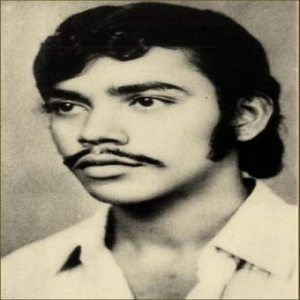
.png) Joseph Maliakan
Joseph Maliakan
The arrest and death in police custody of P Rajan, a Regional Engineering College, Calicut student, in March 1976 during the internal emergency, symbolised police highhandedness and brutality of the emergency regime throughout the country.
True, the poor, marginalised people of Northern states like Uttar Pradesh, Madhya Pradesh, Rajasthan, Bihar and Delhi went through untold misery due to forced sterilisations, illegal demolitions of slums in the name of 'development and beautification' and large-scale arrest and incarceration of political opponents. In Delhi, during the infamous demolition at the Muslim-dominated Turkuman gate, scores of people were crushed and killed under the weight of the bulldozers. Their bodies were unceremoniously disposed of with the rubble without even shedding a tear or showing any remorse.
However, the heroic fight by the father of Rajan, Prof Eswara Warrier, to get justice for his missing son became symbolic of the brutality of the police and the utter lack of concern of the state to protect the fundamental rights guaranteed by the Constitution to every citizen of the country without any distinction of caste, creed, religion or gender.
P Rajan and fellow student Joseph Chaly were arrested by the Kerala police on March 1, 1976. He was held in police custody in Kakkayam and tortured. The torture included "uruttal" (rolling a heavy wooden log all over one's body). Rajan died due to the brutal torture, and the police secretly disposed of his body. Rajan was never produced before a magistrate as required under the Criminal Procedure Code.
The case against Rajan related to the naxal attack on a police station in the early hours of February 28, 1976. Rajan obviously was not involved in the attack on the police station because he was on the fateful day present at a cultural festival in his college, and he was arrested on trumped-up charges.
Rajan's torture death in police custody became known nationally and internationally after his father, TV Eswara Warrier, a retired Hindi Professor at Government Arts and Science College, Calicut, filed a Habeas Corpus petition in the Kerala High Court on March 25, 1977, seeking his son's production.
The High Court, after examining a number of witnesses, including the Principal of the Engineering College, Professor Bahauddin, concluded that police in mufti searched the rooms of Joseph Chay and P Rajan, who were in different hostels. Some officers in uniform also went to the hostels. Rajan was taken separately in a van.
"Therefore an overall appreciation of the oral evidence leads us to the conclusion Rajan was taken on the morning of 1-3-1976 from the Regional Engineering College hostel by the police, was seen later under police custody at Kakkayam Travellers Banglaw being tortured by six policemen including Pulikodan Narayanan and therefore it is established that till that point he was in police custody. But the conduct of all those who dealt with and who were personally responsible for dealing with the successive representations of the petitioner (Professor Ishwar Warrier) received by the Home Secretary and the Home Minister (K Karunakaran) is callous, if not highly suspicious," the order said.
In this context, the High Court said that its objective is not to impose any punitive actions for the improper conduct of any official but to invoke the authority placed in the court to PROTECT THE CITIZENS' FREEDOM, solemnly remembering the obligation of the higher judiciary of the land to act as sentinels of human liberty whenever and wherever there is a serious threat to it.
In an unprecedented order, the Kerala High Court said on April 13, 1977, "We hereby issue a writ of Habeas Corpus to the respondents directing them to produce Sri Rajan in this court on April 21, 1977."
Later, after the authorities admitted that Rajan died in police custody, the High Court ordered the prosecution of former Chief Minister K Karunakaran, Deputy Inspector General of Police Jayaram Padikal and Superintendent of Police K Lakshmana for giving false evidence in the Rajan case.
Based on the Rajan case, several films have been made. They included Kattu Vithachavar (2018), Piravi (1988) and Idukki Gold (2013). CR Omanakuttan wrote a book, Shavam Theenikal (The Corpse Eaters) exposing the brutality of Rajan's torture and death in police custody.
In 2006, a play based on Rajan's death in police custody directed by G Ajayan was staged in many places in Kerala. Shabu Madhavan and Salih Rawther portrayed the leading characters, P Rajan and police officer Jayaram Padickal.
The latest addition to Rajan lore is a Malayalam play written by Civic Chandran, Kando Ningal Ente Kuttiye Kando? It was translated into English by PJ Mathew, Have You Seen My Son? The play, directed by Kannan Palakkad, was staged at the Kamani Auditorium, Delhi, as part of the Mahendra Excellence in Theatre Awards (META) on March 17, almost 50 years after the declaration of the emergency.
The play poignantly depicts the agony of the parents on the loss of their only son. Even after three decades of searching, the father could not find his son. He went to all police stations, hospitals and jails. He made representations to police officials, bureaucrats, and state and union ministers, but nobody gave him a credible answer about what happened to his son.
The search ends in a burial ground where he meets one of the policemen whose hands are sullied with the blood of his son. While the policeman pleads with the father not to curse him, the father finds solace in touching the blood-splattered hand of the policeman; after all, the blood is his son's.